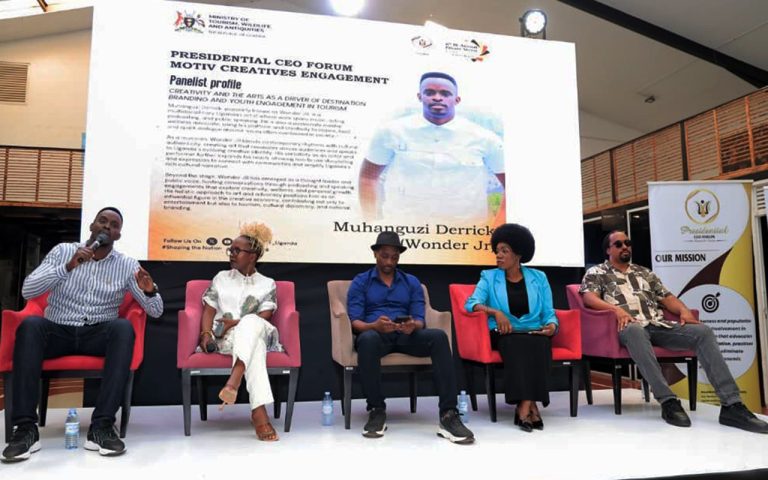Uganda creatives policy call
The Uganda creatives policy debate intensified on Friday when artists and cultural leaders met with government officials at Motiv Uganda in Kampala. The workshop, hosted by the Ministry of Tourism and the Presidential CEO Forum Uganda, gathered musicians, filmmakers, comedians, and legislators to discuss the future of Uganda’s creative economy.
Panelists included film producer Mathew Nabwiso, comedian Anne Kansiime, rappers Navio and Wonder JR, and Bugweri District Woman MP Rachel Magoola, who also chairs the Uganda Parliament Forum for Creatives. They highlighted the industry’s struggles, from piracy to lack of government recognition.
Read Also
Piracy and monetisation challenges
Speakers decried the unfair environment, particularly in film, where producers compete with pirates who invest nothing in production. Nabwiso cited his TV drama Sanyu, which employed 80 people, paid wages, and contributed to tax revenue. Yet piracy undermined its true value.
Anne Kansiime pointed to digital platforms like TikTok and Facebook. While these sites earn from Ugandan audiences, creatives in Uganda cannot monetize content the way their peers abroad do. She argued that without monetisation pathways, talent cannot translate into livelihoods.
“Our system equips us with talent, but where is the course on monetising it? Being a great dancer or actor is not enough if you cannot turn it into rent, food, or dignity,” Kansiime said.
Policy gaps and structural needs
Rachel Magoola emphasized that Uganda’s creative sector remains scattered and unregulated. She called for policies designed to protect copyright, enforce standards, and promote growth. “One of the key things needed to make the industry work is policy centered around benefiting and protecting the industry,” she said.
Rapper Wonder JR echoed this view, stressing that systematic issues such as intellectual property enforcement must be solved for talent to reach full value.
Irene Birungi Mugisha, CEO of the Presidential CEO Forum, added that private sector leaders must partner with creatives. “With your partnership, we can invest, build and grow sectors that place Uganda firmly on the global tourism map,” she said.
Toward a stronger creative economy
The Uganda creatives policy conversation reflects long-standing struggles within the industry. For years, workshops and forums have identified gaps in copyright enforcement, structural support, and financial incentives. Artists argue that unless these systemic weaknesses are addressed, Uganda’s creative economy will remain underdeveloped.
As more voices unite, the pressure on policymakers continues to grow. With the right reforms, Uganda’s artists believe they can compete globally, create sustainable jobs, and contribute significantly to the national economy.

